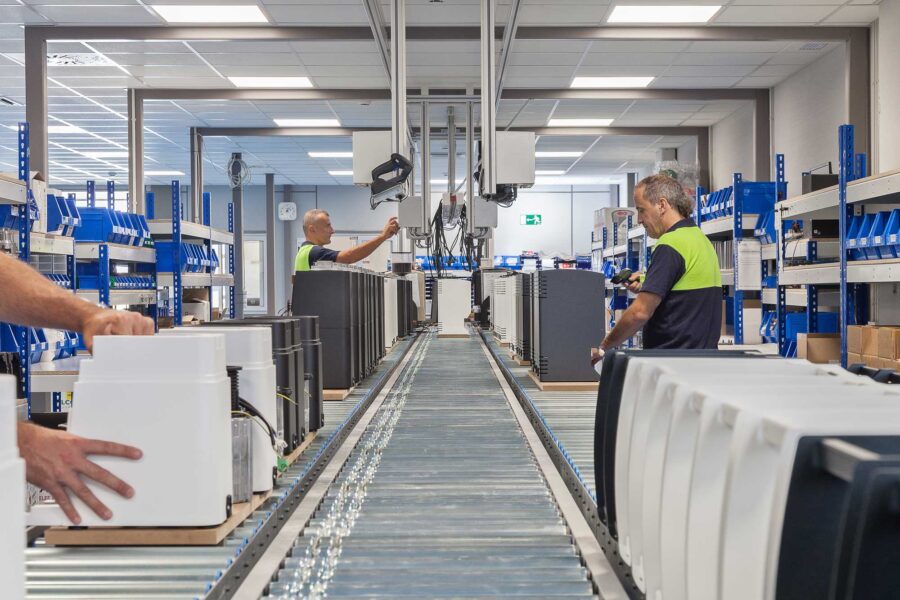
My Barista Pro Are Attending London Coffee Festival 2024
Dedicated to enhancing your barista experience, My Barista Pro are the UK importers of Markibar Grinders. By blending passion, innovation, and expertise, we aim to

Do you love coffee, but worry about its impact on the environment? If so, you’re not alone. Coffee is the second-most traded commodity on the planet after oil, and its production and transportation have a significant environmental impact. However, there are many ways you can make your daily cup of coffee more sustainable and eco-friendly. In this article, we’ll share some tips and tricks to help you enjoy your coffee while minimizing its impact on the planet.
Sustainability refers to the responsible use of natural resources to meet the needs of the present without compromising the ability of future generations to meet their own needs. Sustainable coffee production involves growing coffee in a way that is environmentally friendly, socially responsible, and economically viable. This includes using eco-friendly farming practices, protecting biodiversity, and ensuring that coffee farmers and workers are treated fairly.
Eco-friendly coffee is coffee that is produced in a way that minimizes its impact on the environment. This includes using sustainable farming practices, reducing water and energy use, and minimizing waste. When shopping for coffee, look for brands that prioritize eco-friendliness and sustainability. You can also look for certifications such as Rainforest Alliance, Fairtrade, and Direct Trade, which ensure that coffee is grown and harvested sustainably, and that farmers and workers are treated fairly.
Fair trade and direct trade are two terms you may come across when shopping for coffee. Fair trade coffee is coffee that has been certified by an organization such as Fairtrade International, which ensures that coffee farmers receive fair prices for their coffee and that they are treated fairly. Direct trade coffee is coffee that is purchased directly from the farmer or the farmer’s cooperative, cutting out middlemen and ensuring that farmers receive a fair price for their coffee.

Disposable coffee cups are a major source of waste, with billions of them ending up in landfills every year. To reduce your environmental impact, consider investing in a reusable coffee cup made from eco-friendly materials such as glass or bamboo. Biodegradable coffee cups made from materials such as paper, corn starch, or bamboo fibre are also a good option. These cups are designed to break down in compost facilities, reducing their impact on the environment. There are a great selection of Eco-Friendly cups and accessories on the Allied Drinks Systems website which can be found here.
Ethical sourcing refers to the responsible sourcing of coffee beans. This includes ensuring that coffee farmers and workers are treated fairly and that the coffee is grown and harvested sustainably. When shopping for coffee, look for brands that prioritize ethical sourcing and that are transparent about where their coffee comes from. You can also look for certifications such as Rainforest Alliance, Fairtrade, and Direct Trade, which ensure that coffee is produced in a way that is environmentally friendly and socially responsible.
The classic “reduce, reuse, and recycle” mantra applies to coffee consumption as well. Consider reducing your coffee intake, reusing coffee grounds in your garden or as a natural exfoliant, and recycling used coffee cups and packaging materials.
Sustainable coffee practices are an essential part of protecting the environment and supporting ethical practices in the coffee industry. From fair trade and direct trade to ethical sourcing and reusable cups, there are many ways to make your coffee consumption more eco-friendly. By making simple changes to your coffee routine, you can help support sustainable practices and protect the planet for future generations.
By following these tips, you can make your daily cup of coffee more sustainable and eco-friendly. Remember to look for brands that prioritize eco-friendliness, sustainability, and ethical sourcing. By supporting these brands, you are not only reducing your environmental impact but also supporting coffee farmers and workers around the world. So, the next time you enjoy a cup of coffee, do it with the knowledge that you are helping to make the world a better place.
Rainforest Alliance – Link
Fairtrade International – Link
Perfect Daily Grind – Link

Dedicated to enhancing your barista experience, My Barista Pro are the UK importers of Markibar Grinders. By blending passion, innovation, and expertise, we aim to

Dedicated to enhancing your barista experience, My Barista Pro are the UK importers of Markibar Grinders. By blending passion, innovation, and expertise, we aim to
